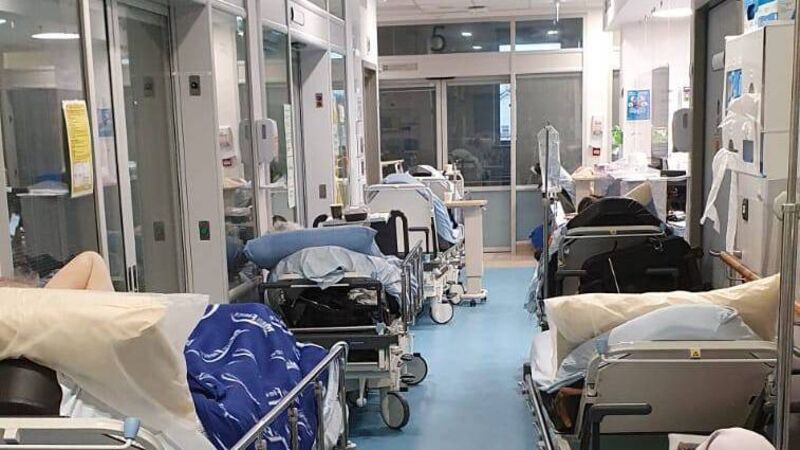Irish Examiner View: Permanent crisis at Limerick hospital

Patients on trolleys at the Emergency Department at University Hospital Limerick hospital.
Try from €1.50 / week
SUBSCRIBEAnother week, and another set of damning statistics emerges for patient treatment at University Hospital Limerick (UHL).
A Hiqa report identifies one patient who waited on a trolley for 116 hours. A second took more than 85 hours, and the delay for a third was 71 hours. One patient who required an angiogram, a relatively straightforward process, waited for 45 hours. It should normally be carried out within six hours.
Already a subscriber? Sign in
You have reached your article limit.
Annual €130 €80
Best value
Monthly €12€6 / month
Introductory offers for new customers. Annual billed once for first year. Renews at €130. Monthly initial discount (first 3 months) billed monthly, then €12 a month. Ts&Cs apply.
CONNECT WITH US TODAY
Be the first to know the latest news and updates
Newsletter
Sign up to the best reads of the week from irishexaminer.com selected just for you.
Newsletter
Keep up with stories of the day with our lunchtime news wrap and important breaking news alerts.
Newsletter
Sign up to the best reads of the week from irishexaminer.com selected just for you.
Tuesday, February 10, 2026 - 12:00 PM
Tuesday, February 10, 2026 - 8:00 PM
Tuesday, February 10, 2026 - 9:00 PM
© Examiner Echo Group Limited